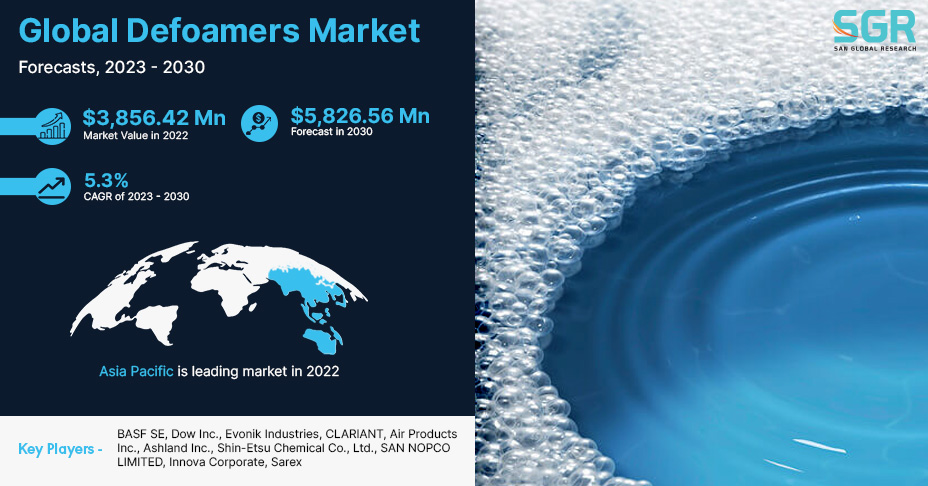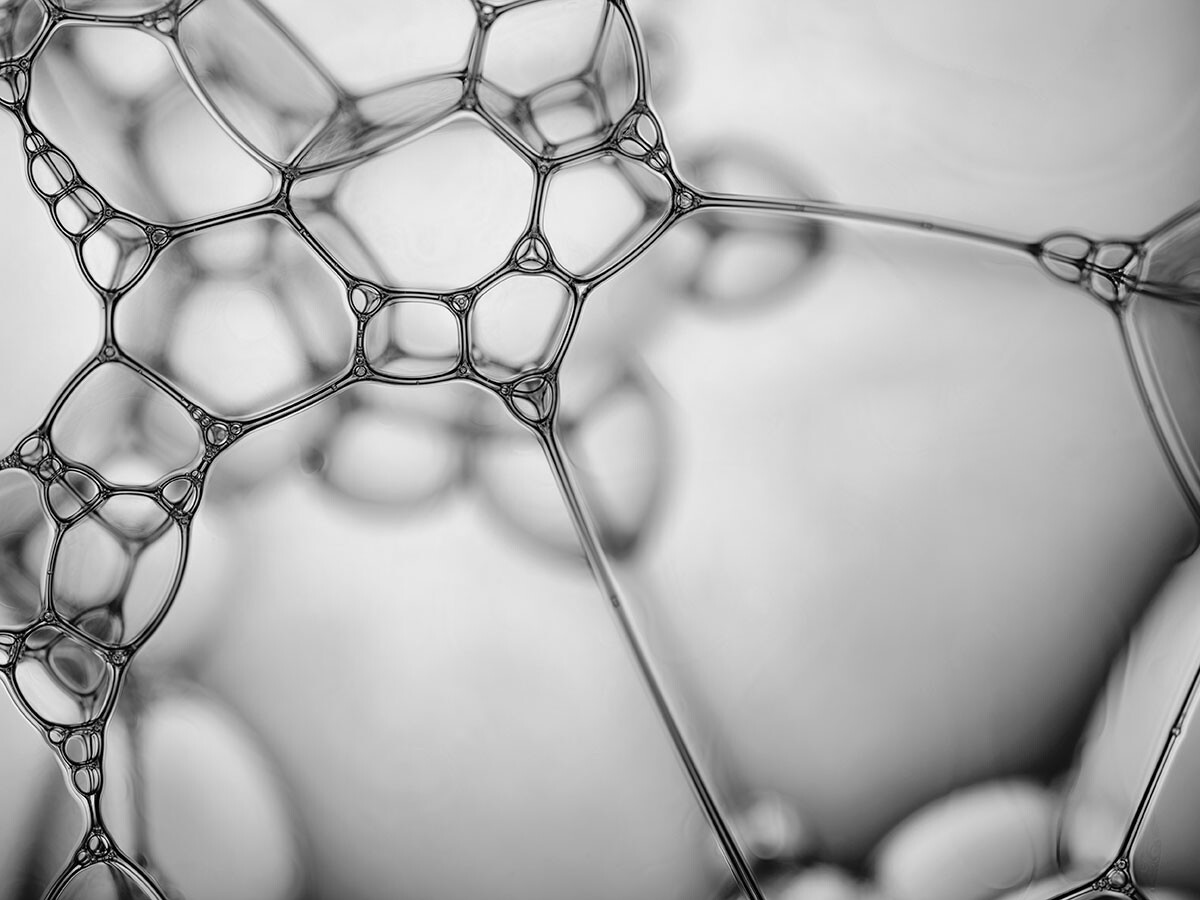The Duty of Defoamers in Enhancing Product Quality and Efficiency
In different manufacturing procedures, the existence of foam can considerably prevent item quality and functional effectiveness. Defoamers act as essential ingredients that reduce this concern, making sure smoother production operations while improving the visual and practical characteristics of the last products (defoamers). Their application covers a multitude of sectors, from food and beverage to drugs, where consistency and dependability are paramount. Nevertheless, the choice of the proper defoamer can be crucial to attaining optimal results, elevating essential inquiries about formula compatibility and performance metrics that merit more exploration.
Recognizing Defoamers
Recognizing the duty of defoamers is essential for maintaining product quality across various industries. Defoamers are chemical additives designed to prevent the formation and lower of foam in fluid systems, which can detrimentally influence procedures such as blending, filling up, and surface tension. Foaming can lead to inefficiencies, product issues, and endangered visual charm, making defoamers an important element in producing operations.
In commercial applications, defoamers assist to enhance product uniformity and stability. The reliable use of defoamers not just makes sure smoother production procedures yet likewise adds to remarkable product performance.
Moreover, the choice and formulation of a defoamer need to align with certain application requirements, such as compatibility with various other ingredients, performance under varying temperature level and pH conditions, and prospective regulatory restrictions. Ultimately, comprehending defoamers' features and their significance in different formulations is critical for enhancing manufacturing and making sure the highest possible quality end items.
Kinds Of Defoamers
Defoamers can be categorized right into numerous types based on their structure and device of action. The main types include silicone-based, non-silicone natural, and not natural defoamers.
Silicone-based defoamers are amongst the most efficient, largely due to their capacity to spread promptly on the fluid surface area and interrupt foam development. Their distinct chemical structure permits remarkable security, making them ideal for high-temperature applications and environments with varying pH levels.
Non-silicone organic defoamers, typically made up of fatty acids or all-natural oils, are valued for their biodegradability and reduced poisoning. These are commonly used in food and beverage applications where safety and security and environmental impact are critical.
Inorganic defoamers, which include substances like talc or calcium carbonate, act by enhancing the density of the liquid, thereby decreasing foam stability. They are frequently utilized in industrial procedures where compatibility with various other products is not a worry.
Each kind of defoamer has unique advantages and limitations, enabling customized remedies relying on the details lathering problems experienced in different applications. Comprehending these differences is crucial for maximizing efficiency and accomplishing desired item top quality.
Applications Across Industries
Numerous sectors take advantage of defoamers to improve product top quality and operational efficiency. In the food and drink industry, defoamers are important in processes such as developing and dairy products manufacturing to protect against foam formation, which can lead to inadequacies and product inconsistency. By regulating foam, makers can guarantee better return and a much more consistent item.
In the pharmaceutical industry, defoamers play a crucial role in the solution of liquid drugs, where excessive foam can restrain mixing and exact dosing. Their usage helps preserve the honesty of the formulas and facilitates smoother production procedures.
The paint and finishings sector likewise relies upon defoamers to improve the efficiency of items during application. By decreasing foam, these additives make sure a smoother coating and enhance the visual top qualities of the end product.

Advantages of Making Use Of Defoamers
While the application of defoamers you can check here differs across industries, their benefits regularly improve item top quality and procedure efficiency. One significant advantage is the reduction of foam development throughout making procedures, which can or else bring about production hold-ups and inconsistencies in product high quality. By decreasing foam, defoamers enable a smoother flow of materials, helping with much more efficient operations and lowering the chance of tools breakdowns.
Furthermore, the use of defoamers can improve the look and appearance of final products. In industries such as coverings, paints, and food handling, extreme foam can endanger the aesthetic looks and total high quality, while the appropriate defoamer application makes certain a consistent coating and desirable characteristics. Additionally, defoamers can home add to cost financial savings by reducing waste during manufacturing and optimizing making use of raw materials (defoamers).

Choosing the Right Defoamer
Selecting the best defoamer is vital for enhancing manufacturing procedures and making sure product high quality. The option of defoamer influences not only the effectiveness of foam control but also the general performance qualities of the last item. Factors to think about include the kind of application, the chemistry of the formulation, and the ecological problems under which the item will be utilized.
Different industries might call for certain defoamer types, such as silicone-based, organic, or polymeric defoamers. Understanding the compatibility of the defoamer with the key active ingredients is vital to prevent adverse responses that can jeopardize product honesty. Furthermore, the defoamer's effectiveness in numerous temperature levels and pH levels must be reviewed to make sure consistent efficiency.
Testing the defoamer in small applications can provide beneficial insights right into its performance and suitability. Factor to consider of regulative conformity, especially in food, drugs, and cosmetics, is paramount in choosing a defoamer. Inevitably, a complete assessment of these variables will cause the option of a defoamer that not only manages foam effectively however also improves the top quality and performance of the last product.
Final Thought

In conclusion, defoamers are vital ingredients that considerably boost item quality and performance throughout numerous sectors. By effectively decreasing foam development, these representatives not just click this link boost functional performance but also add to the useful and visual honesty of products. The tactical option and application of defoamers cause set you back financial savings, maximized resource usage, and enhanced customer satisfaction. Generally, the importance of defoamers in commercial procedures can not be overstated, as they play an important role in accomplishing constant and top notch results.
Foaming can lead to inefficiencies, item defects, and endangered aesthetic allure, making defoamers a crucial element in manufacturing operations.
